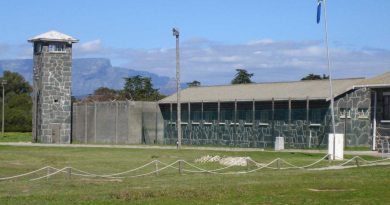Justice Project says RTMC’s “WOZA re-test” flawed

JOHANNESBURG – Justice Project South Africa has noted the contents of the media release from the Road Traffic Management Corporation dated Wednesday, 23 May 2012 and entitled “RTMC TO ROLL OUT PROJECT WOZA RE-TEST” and would like to offer the following comments thereon.
Whilst it may appear encouraging that the RTMC is seemingly finally taking a proactive stance on road safety in accordance with the United Nations Decade of Action for Road Safety programme, it is disappointing to see them openly and fragrantly misquoting the sections of the National Road Traffic Act which apply to suspension of driving licences, as well as their apparent second-guessing of our judicial system.
Section 25 of the National Road Traffic Act deals with the executive powers of the CEO of the RTMC to, after following due processes as described in the body of this release, suspend or cancel the driving licence of a person who he or she deems to be a dangerous driver. It is this section that has been quoted in the RTMC’s media release as being relevant to a list of offences in that release and this is factually incorrect.
Section 35 of the National Road Traffic Act makes it mandatory for a judge or magistrate to suspend driving licenses of convicted persons for a minimum period of 6 months on first conviction, five years on the second and 10 years for the third for offences under Sections 59, 61, 63 and 65 of the National Road Traffic Act. This is the duty of the courts although the discretion of the court may be exercised in not imposing such a suspension “if it is satisfied that circumstances relating to the offence exist which do not justify the suspension or disqualification referred to”. It is this section of the National Road Traffic Act that is incorrectly referred to as being part of Section 25 of the Act in the RTMC’s release.
It now seems that the RTMC wishes to take the law into its own hands, instead of engaging with the Department of Justice to get a directive rolled out for members of the judiciary to take this provision seriously. Unfortunately, the courts have routinely not been enforcing such suspensions since Section 35 of the National Road Traffic Act was proclaimed as being in force from November 2010.
It is alarming to note that the RTMC has chosen to exclude Section 61 of the Act which deals with failing to stop to ascertain the extent of injuries of other persons (hit and run) after a crash (where death or serious injury is involved) in its list of offences and has instead decided to include “inconsiderate driving” which falls under Section 64 of the Act, trying to make it one and the same as “reckless or negligent driving” which falls under Section 63 of the Act. The charge of, “inconsiderate driving” is scheduled as one of the most minor infringements that can be committed by any motorist under charge code 5602 of schedule 3 of the AARTO Regulations, which carries a fine of R250 (discounted to R125) and no demerit-points, so it is questionable why the RTMC would not know this.
Whilst the idea to re-test all persons who have been convicted of the very serious traffic offences scheduled under Section 35 of the National Road Traffic Act, retrospective to 1 January 2012, is a seemingly good idea and JPSA fully supports the notion that mandatory driver re-testing should become a feature of South African Traffic Law, we do question how well thought out this particular project is if the RTMC has managed to misquote the very legislation that it was formed to oversee and seeks to act upon.
Furthermore, we fail to understand why the proviso: “Convicted offenders will be given fourteen working days in which to explain why his/her license should not be suspended pending the outcome of a re-test of both the learner’s and driving licenses” would be in the least bit necessary. Surely if a person fails a driving test their licence should be suspended until they can pass; and surely if they pass, there would be no reason to again plead for their driving licence not to be suspended, if a court has already determined that it should not be?
We also have to question why it is that this announcement has been made with no further mention of the nationwide rollout of AARTO, which is supposed to seek to impose demerit-points on driving licences on a gradient basis, thereby not waiting for people to commit serious traffic offences prior to doing something about their driving habits and which has been postponed over and over again, with no end in sight. This is a project that the RTMC was tasked with rolling out four years ago and they have not managed to do so or oversee its correct and lawful implementation in Johannesburg and Tshwane and yet they seek to now go off at a new tangent.
The further announcement to the effect that “shortly, the RTMC will also be partnering with a private sector company to offer driver education classes at no cost” also comes as a huge surprise to us, given the fact that no private sector company would provide such services for free and no tender that we can detect has been announced at any stage by the RTMC for the provision of this service.
Howard Dembovsky may be contacted for further comment.
Howard Dembovsky
National Chairman – Justice Project South Africa (NPC)




